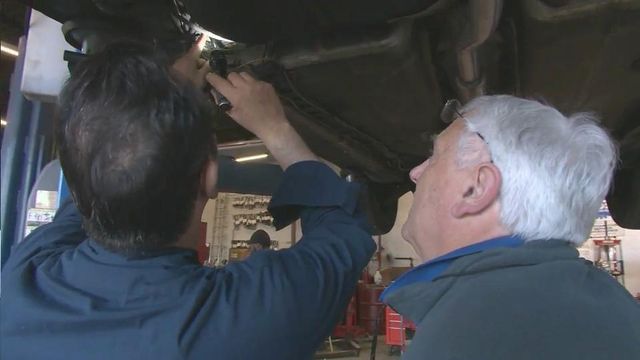Choose wisely to keep car running longer
Research shows the average vehicle on the road is nearly 11 years old. Consumer Reports says the key to keeping your car longer is to choose wisely and keep it maintained.
Posted — UpdatedWhen Ariel Manacher bought his Toyota Camry in 1996, he never imagined the car would hit 226,000 miles.
“I am the first owner, and I will be the last owner,” he said. “I didn’t know it would get this far, but it did, and we’re pleased.”
Consumer Reports auto expert Liza Barth said a lot of people don’t realize the long-term financial benefits of keeping a car for so long.
“Our research shows if you hit 200,000 miles, which takes the average driver about 15 years, you could potentially save more than $30,000,” Barth said.
To save money, it’s important to shop for a car you can live with long term.
“Make sure it fits your lifestyle and don’t compromise on features, especially safety features, like electronic stability control and a rear-view camera, if you can get it,” Barth said.
It is also important to pick a vehicle with a reliable track record, like Manacher’s Toyota Camry.
Consumer Reports offers these tips:
- Check your oil once per month on a newer vehicle, or more if you’ve noticed leaks.
- Check your tire pressure at least once a month.
- Wash your car once a week. It’s time to wax it when the water beads are larger than a quarter.
It is also important to stick to the maintenance schedule in the owner’s manual.
Oil changes are very important, but only get them when they are necessary. Consumer Reports says there’s no need to go overboard.
“Don’t waste money on maintenance you don’t need,” Barth said. “Many vehicles can go 10,000 miles versus 3,000 miles for an oil change.”
Also, don’t skip on parts – trying to save a couple of bucks on cheap parts and fluids could cost more in the long run.
Finally, like Manacher, listen for any strange sounds and get small things fixed before they become a big problem.
“The car starts every day, and that’s what you really want in a car,” Manacher said. “You want to get in it and go. You don’t want to worry about it.”
• Credits
Copyright 2024 by Capitol Broadcasting Company. All rights reserved. This material may not be published, broadcast, rewritten or redistributed.





